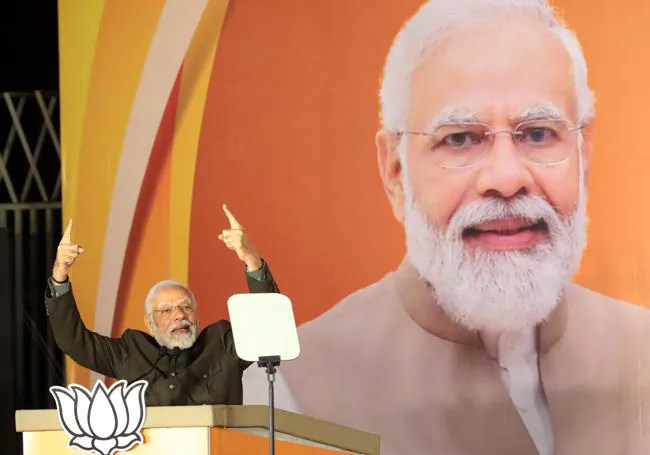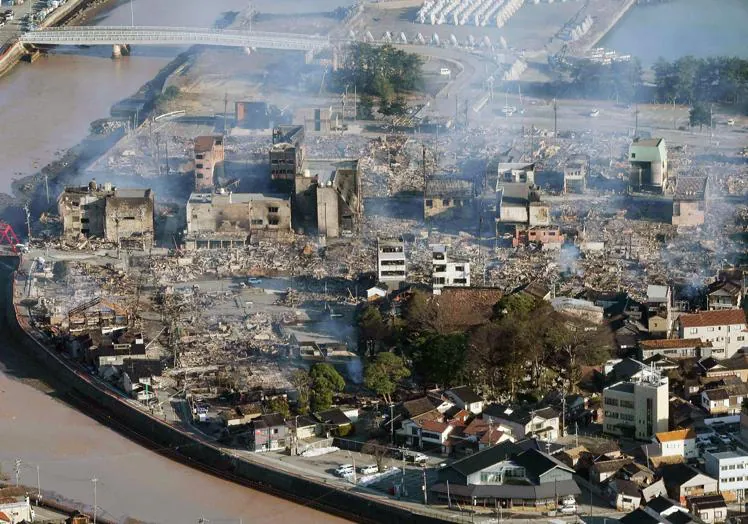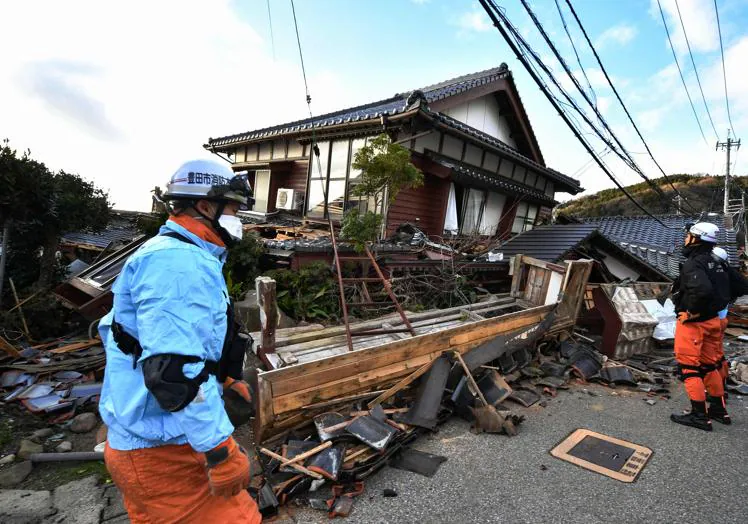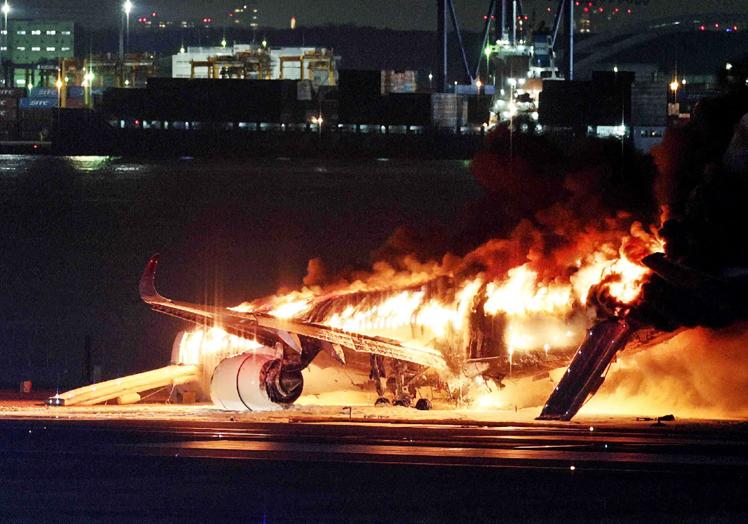Never before have so many general and presidential elections been held as those scheduled for 2024. More than 60 countries, home to half the world's population, will go to the polls in elections that will have a great impact far beyond of its borders. From the United States to India, passing through Taiwan, which opens the ban in a few days, Russia, where the winner has already been decided, the invaded Ukraine, although they are not yet confirmed, South Africa or the United Kingdom.
Therefore, today we analyze how the world can change at the polls this year.
These are the two topics we will address today:
-
The biggest election year in history
Half of the world's population will vote this year
Trump again? Yes again.
AFP
Ukraine, for example. It has become clear in recent weeks. If the Republicans return to the White House, especially if they do so with Trump at the helm, the Slavic country may have a particularly difficult time defending itself from the Russian invasion. Because the support of the European Union (burdened by Hungary's missteps) will not be enough. Furthermore, the country now led by Volodymyr Zelensky may suffer its own domestic turbulence if he ends up holding the presidential elections scheduled for the spring. There are many who believe that the polls should not be placed until the race is over, 80% according to a survey, but it is a decision that has not yet been made.

This is what candidate Volodymyr Zelensky looked like in the 2019 elections. He didn't know what awaited him.
AFP
Yes, elections will be held in its two main enemies: Russia and Belarus. In the first, the winner is known before the first vote is cast: Vladimir Putin competes with himself, because his opponents are in jail, in exile, or dead. And in neighboring Belarus, the legislatures are not going to challenge the perennial power of Alexandr Lukashenko either. They are two dictators who justify their power with votes that reflect absolutely nothing.

Putin votes to dissemble.
EFE
In any case, the most significant electoral races of the year begin on the 13th in Taiwan, the 'de facto' independent island that China claims for itself, and that many see as the future spark that will start the inevitable war between Beijing and Washington. As usual since it became a democracy, the pro-independence DPP, currently in the presidency, and the Kuomintang, the party that lost the Chinese civil war with Mao Zedong's communists before fleeing to Taiwan, are fighting for power in Taipei. Now he advocates for greater understanding with the People's Republic, which launches disinformation campaigns to lend a hand to its old enemy. Despite this, the DPP starts with a slight advantage in the polls.

The campaign in Taiwan, quite a spectacle.
EFE
The biggest elections will be held in spring in India. Almost a billion citizens will be able to elect a new prime minister, although everything indicates that the current one, the populist Narendra Modi, will continue to lead the emerging power, perhaps even with more support than before. It doesn't matter that it is undermining the most populous democracy on the planet, a setback in freedoms that can be seen in many other countries. The neighbor and enemy Pakistan is one of them, and there they will also go to the polling stations after the surreal political soap opera of Imran Khan, the cricketer who became prime minister in 2018, who lost a motion of no confidence four years later, and that he was arrested for corruption last year, sparking demonstrations that continue to shake the country. Elections in these two countries will be crucial for the Indian subcontinent region to remain relatively peaceful. Or quite the opposite, of course.

Narendra Modi at a rally.
EFE
Where peace seems increasingly like a chimera is in Africa. Especially in the Sahel, where several countries have fallen into the hands of the army after their corresponding coups d'état. Voting is expected there in Chad and Mali, but it has yet to be determined when and it would not be surprising if they are cancelled. Not so in two of the countries with the most consolidated democracies: South Africa and Senegal. Unfortunately, they are oases in a desert of authoritarianism.
Closer are the elections to the European Parliament, where it will be necessary to see if the rise that the extreme right has had in the national and regional elections of its member countries is confirmed. If its presence is consolidated, the EU can continue to deepen both the tension that is advancing across the continent and the hardening of its policies against illegal immigration, one of Europe's great challenges in the short and medium term. Precisely, another of those who will face the population's revalidation with some of the strictest plans in this regard will be Rishi Sunak in the United Kingdom. He will try to bring stability to a position of prime minister that has seen three people in as many years.
-
An exemplary society
Japan and the difference of doing things well
Japan couldn't have started the year worse. Just sixteen hours after entering 2024, a strong earthquake measuring 7.6 on the Richter scale set off the country's main alarms: tsunami and nuclear emergency. Fortunately, none of these threats ended up materializing, and both the number of fatalities and material damage have been very low for an earthquake of this strength.

Even in the areas closest to the epicenter, most buildings have remained standing.
AFP
Any country less prepared than Japan would now be counting thousands of deaths. Because the earthquake would have caused hundreds of buildings to collapse. It is not an assumption: it happened in September of last year in Morocco, when the earth shook with a force of 6.8, and left almost 3,000 dead. In February it had also occurred in Turkey and Syria with similar shocks -7.8 and 7.5- that left some 60,000 dead. In Japan there have been fifty.
Without a doubt, the fact that it has one of the best infrastructures in the world to deal with earthquakes, because it is one of the countries that suffers them the most, is the main reason why tremors in the Asian archipelago do not usually have such devastating consequences. Even in the one that left almost 20,000 dead in 2011, the problem was not so much the earthquake as the tsunami that followed, which devastated the Fukushima nuclear power plant. Little can be done to stop a raging wall of water.
However, after having covered different natural disasters – the Southeast Asian tsunami 20 years ago, and the earthquakes in Pakistan and China some time later -, I appreciate two elements that are key: the absence of corruption and the extraordinary behavior of society .

Old buildings have been the most affected.
AFP
The former is vital to meeting life-saving construction and maintenance standards, and also to achieving plans to implement early warning systems. In Japan they work very well and people receive alarms on their cell phones and through the media in real time; In Indonesia, where they were going to settle, they are still a chimera. Where the funds destined for its implementation have gone is a mystery, but surely they will have to be searched in the pockets of some officials.

The Japan Airlines Airbus 350 crashed yesterday in Tokyo.
AFP
The second issue is the one from which we could learn the most. The Japanese population, diligent like no other, rarely loses its cool and behaves with respect. A better example than the evacuations ordered during the earthquake is that of the Japan Airlines plane that crashed yesterday at Tokyo's Haneda airport after colliding with a small Coast Guard aircraft. Videos recorded inside show an orderly exit that would have been science fiction in almost any other country, where some would have piled on top of others.
This only happens in Japan: the Airbus 350 that collided with another plane during landing is burning, flames can be seen through the windows and the cabin is filled with smoke, but the passengers remain seated waiting for instructions to an evacuation that… pic.twitter.com/KhAH6AD5pH
— Zigor Aldama 齐戈 (@zigoraldama) January 2, 2024
It is evident that Japanese society hides dark aspects, and that the extreme rigidity that governs it can be negative on many occasions. But also that it works to create a safe, respectful and supportive society. Very different from what is advancing in the West. It is worth reflecting on it and being more like Japan.
Is all for today. I hope I have explained well some of what is happening out there. If you are signed up, you will receive this newsletter every Wednesday in your email. And, if you like it, it will be very helpful if you share it and recommend it to your friends.
#Record #number #elections #shape #world

